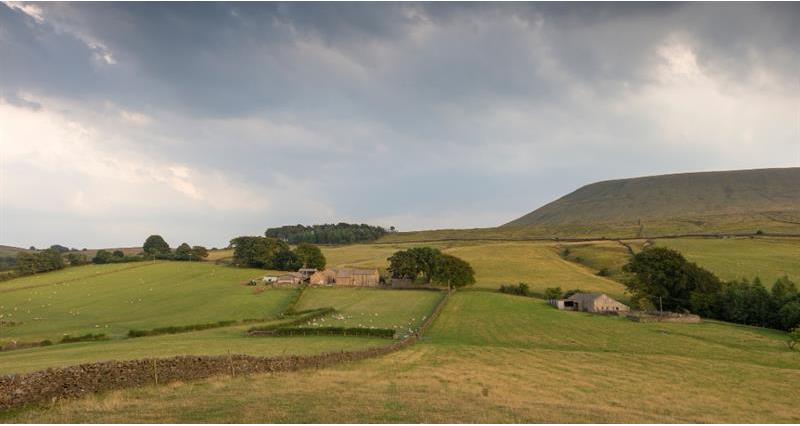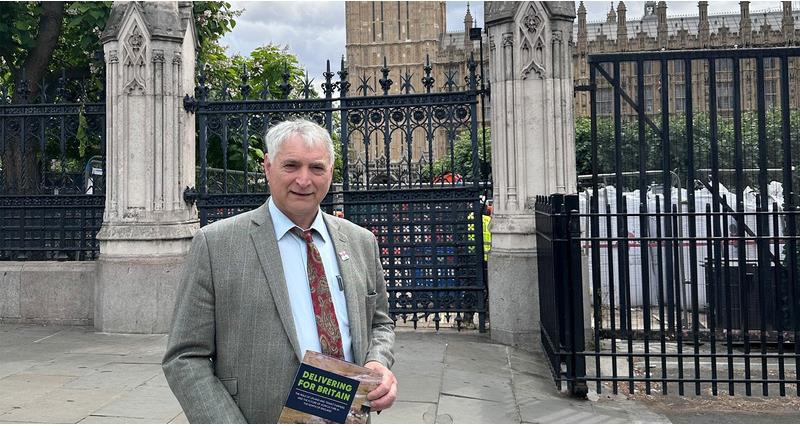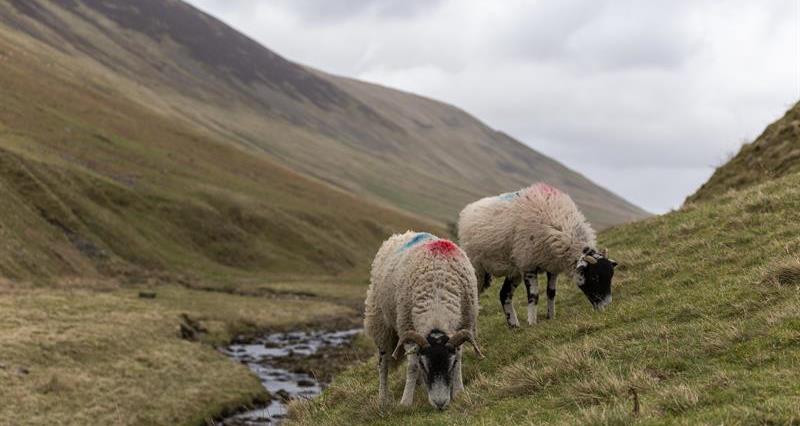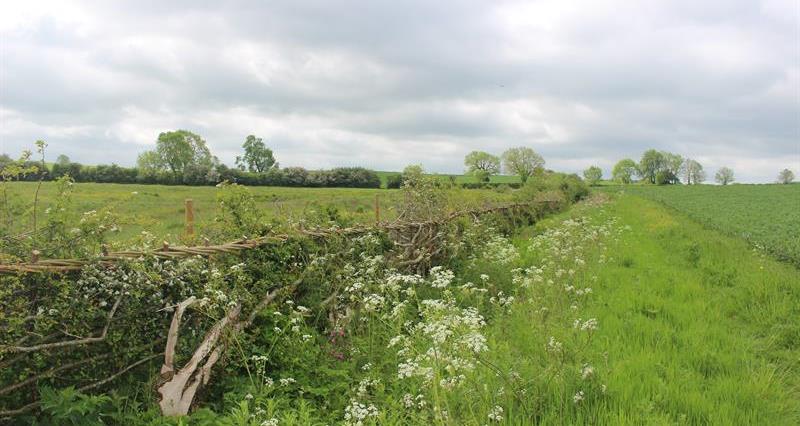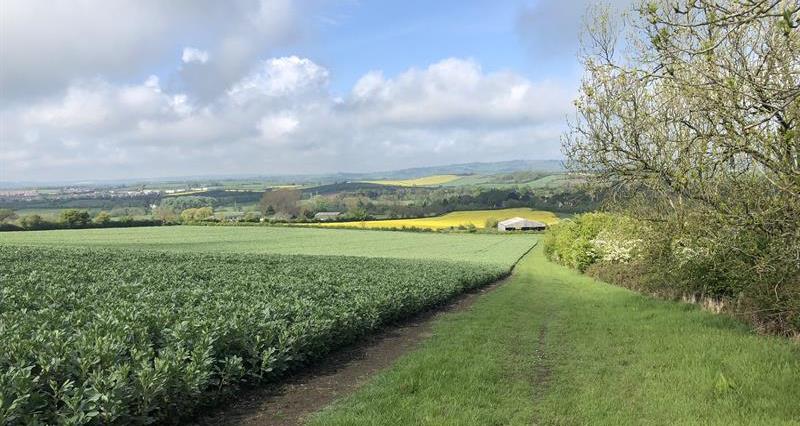Despite the public goods that uplands farms deliver to the UK, NFU research showed that on average businesses lost 37% of their support payments under the current SFI (Sustainable Farming Incentive) and CS (Countryside Stewardship) options available to them.
The results, which have been described as ŌĆ£incredibly disappointingŌĆØ by NFU Uplands Forum chair Thomas Binns, show that the current ELMs offer falls short of providing a viable future for upland businesses.
He added: ŌĆ£Like all upland farmers, I love the hills I work in, and I want to ensure that I can continue to produce food for the nation while leaving the countryside in a better state for the next generation.
ŌĆ£But as the modelling shows, the current ELMs offer falls short of providing a viable future for upland businesses.ŌĆØ
ŌĆ£We want to see upland farm businesses thriving, but that is almost impossible if they are not being supported fairly for the work they do.ŌĆØ
NFU Vice President David Exwood
NFU research explained
╗╩╝ę╗¬╚╦wanted to understand how the transition to ELMs from BPS and environmental stewardship would impact upland farms in England. Six typical uplands farms put forward their data to be analysed as part of this modelling work. The results were anonymised to protect their data.
The model calculated the maximum theoretical SFI and CS earnings for each farm. However, upon discussing the results with the case study farms, farmers are unlikely to max out the CS and SFI actions due to business structures. Yet, even if they could, current CS and SFI options do not make up for the loss of BPS, as discovered by the NFUŌĆÖs modelling work.
All comparisons were made against BPS 2021/2022 (before reductions) and 2013 Environmental Stewardship payment rates. These figures were taken as representative of what the model farms would have earned before reductions of BPS began in 2021.
NFU members can log in and watch back our SFI uplands national member event, where the modelling work referenced in this article was discussed in further detail: Watch again: SFI uplands national member event
Lost income
Four of the six farms claimed BPS and were in agri-environment schemes. The modelling found that if BPS was removed and these four upland farms entered the current available SFI and CS options plus the proposed Moorland Rough Grazing 2024 option at a payment rate of ┬Ż150/ha, only one of the farms farm could make up their lost income. This was because the farm had a high proportion of moorland hectares.
For the other three farms which claimed BPS and were in agri-environment schemes, they could not regain their 2021 income made up of BPS and HLS (Higher Level Stewardship) payments. The farms, on average, lost 37% of their government support compared to 2021.
One of the farms in the case study claimed BPS but was not in an agri-environment scheme. The model showed that even if this farm entered all available CS and SFI options for that farm, they could still not make up their lost BPS.
The last farm out of the six case studies did not claim BPS but was in an agri-environment scheme. This farm was capable of increasing their government support because they had less money to lose overall due to not claiming BPS.
More suitable SFI options needed
╗╩╝ę╗¬╚╦awaits further SFI moorland options from Defra. However, moorland options only benefit those with moorland hectares ŌĆō which around 60% of uplands farms do not have.
NFU Vice President David Exwood has stressed that the NFU has been ŌĆ£urgingŌĆØ Defra to bring forward SFI options which ŌĆ£deliver meaningful income in return for the vital management hill farms deliver and the environmental goods they supplyŌĆØ.
He described the figures shown by the NFUŌĆÖs modelling work as ŌĆ£unsurprisingŌĆØ, saying: ŌĆ£We want to see upland farm businesses thriving, but that is almost impossible if they are not being supported fairly for the work they do.ŌĆØ
The grassland only upland farms - those in HLS but without moorland - will increasingly lose income support through ongoing BPS reductions.
Based on current 2024 proposals from Defra, there will be very limited new SFI options they can access ŌĆō and even then, these options will not make up this lost income.
Ultimately, the modelling found that those in agri-environment schemes had the smallest opportunity to replace lost BPS. This results in those already supporting the environment being penalised the most by domestic agricultural support changes.
Uplands farms are in a ŌĆśprecarious positionŌĆÖ
NFU Uplands Chair Thomas Binns said: ŌĆ£It is incredibly disappointing that we find ourselves, after years of consultation with Defra, still with such a significant gap in the income of upland farmers.
ŌĆ£This is after we were told repeatedly that we would be recognised for the work we do, and that our businesses ŌĆō so vital to the makeup of the countryside ŌĆō wouldnŌĆÖt be worse off in the transition from BPS.
ŌĆ£We have been encouraging Defra for some time to undertake its own modelling work to understand the impact of direct payment loss on upland incomes, but this has never materialised.
ŌĆ£Our modelling now shows the precarious position of these most treasured landscapes. What we need to see are options that reward the public goods we deliver and I look forward to continuing to discuss this modelling with Defra.ŌĆØ
David added: ŌĆ£We must remember that upland farms create and manage the landscapes found in much of the countryŌĆÖs most treasured areas, such as National Parks and Areas of Outstanding Natural Beauty, which delivers ┬Ż1.7bn to local economies through tourism.
They are also part of the fabric of rural communities, saving homes from flooding, looking after miles of stone walls and hedges and producing nutritious and sustainable beef and lamb.ŌĆØ
╗╩╝ę╗¬╚╦is currently discussing these results with Defra and anticipates an SFI announcement with new options by the end of the year.
